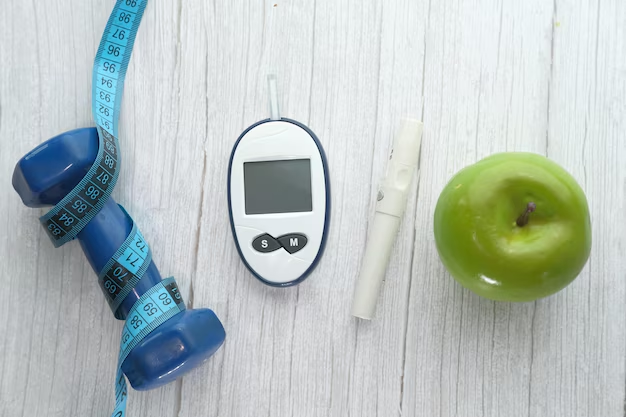Your Guide to What Food Should Diabetics Avoid
What You Get:
Free Guide
Free, helpful information about Diabetes FAQ and related What Food Should Diabetics Avoid topics.
Helpful Information
Get clear and easy-to-understand details about What Food Should Diabetics Avoid topics and resources.
Personalized Offers
Answer a few optional questions to receive offers or information related to Diabetes FAQ. The survey is optional and not required to access your free guide.
Foods Diabetics Should Steer Clear Of
Living with diabetes means making informed dietary choices to keep blood sugar levels steady. However, knowing which foods to avoid can be a bit tricky. Understanding the kinds of foods that can cause spikes in blood sugar is crucial to managing diabetes effectively. Let’s delve into the major food categories diabetics should avoid—or at least consume with caution.
Sugary Foods
Sugary foods are the most obvious type to limit or avoid if you have diabetes. These include sweetened beverages like sodas and fruit juices, desserts, candies, and pastries. Such foods can cause rapid spikes in blood sugar levels due to their high glycemic index. Instead of quenching your thirst with sodas, opt for water or unsweetened teas, and replace desserts with fresh fruits or sugar-free options.
Refined Carbohydrates
When it comes to carbs, not all are created equal. Refined carbohydrates like white bread, white rice, and pasta should be limited. These foods are quickly broken down into sugars, resulting in a sudden increase in blood sugar levels. Whole grains, such as brown rice or whole wheat bread, are better alternatives as they have a lower glycemic index and provide more fiber.
Trans Fats
While trans fats don’t directly raise blood sugar levels, they still pose significant risks for diabetics. Often found in margarine, packaged snacks, and baked goods with partially hydrogenated oils, trans fats can increase inflammation, insulin resistance, and belly fat, adversely affecting cholesterol levels. Opt for foods with healthy fats such as avocados, nuts, and olive oil instead.
High-Fat Dairy Products
Not all dairy is created equal for those managing diabetes. High-fat dairy products, such as whole milk, cream, and regular-fat cheese, can contribute to insulin resistance because of their saturated fat content. Choosing low-fat or non-fat options can help maintain a healthier diet plan and aid in better blood sugar control.
Processed Meats
Processed meats like bacon, sausages, and deli meats are commonly high in salt and preservatives, which can exacerbate conditions associated with diabetes, such as high blood pressure and heart disease. Instead, prioritize fresh, lean meats such as chicken breast, turkey, or fish, which provide necessary proteins without significant health risks.
Alcohol
While moderate alcohol consumption may be permissible for some diabetics, it’s crucial to understand how alcohol affects your body’s insulin response and blood sugar levels. Alcohol can interfere with medications and metabolism, leading to unpredictable blood sugar drops. If you choose to drink, do so with caution and always pair it with a meal.
Maintaining a diet that supports diabetes management is fundamentally important for long-term health. Yet, it's also worth noting that managing diabetes extends beyond just food choices. Financial stress can impact overall well-being and stress management can directly affect blood sugar levels. Therefore, exploring financial assistance programs can significantly ease the burden for those struggling with medical expenses or dietary changes necessary due to diabetes.
Here’s a quick look at some resources available:
- 💳 Credit Card Solutions: Look for cards with 0% APR financing options for medical expenses.
- 🎓 Educational Grants: Explore grants or scholarships for courses that teach diabetes management and nutrition.
- 🏛️ Government Aid: Programs like SNAP (Supplemental Nutrition Assistance Program) can help cover food costs.
- 🩺 Medical Financial Aid: Seek out pharmaceutical assistance programs that offer free or discounted diabetes medications.
- 📊 Debt Relief Options: Various debt consolidation or relief options are designed to ease financial stress, allowing better focus on health.
Understanding not only what foods to avoid but also how to balance these with broader life challenges can empower diabetics to lead healthier, more balanced lives.
What You Get:
Free Diabetes FAQ Guide
Free, helpful information about What Food Should Diabetics Avoid and related resources.

Helpful Information
Get clear, easy-to-understand details about What Food Should Diabetics Avoid topics.

Optional Personalized Offers
Answer a few optional questions to see offers or information related to Diabetes FAQ. Participation is not required to get your free guide.


